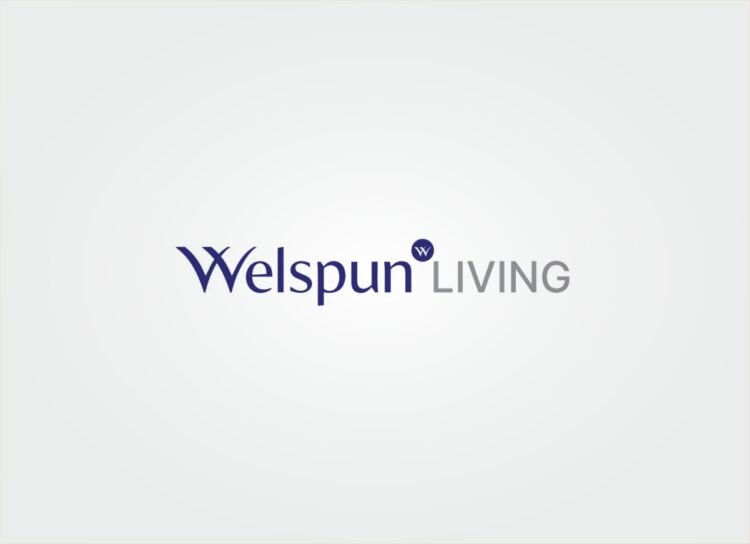Institutional dilution (FII down to 4.75%) could amplify promoter influence, potentially impacting future agility in volatile markets.
MUMBAI (India CSR): Welspun Living Limited (formerly Welspun India Limited), a prominent player in the home textiles and flooring solutions sector, exhibits a classic example of family-dominated promoter control in Indian corporate landscape. As of March 31, 2025, the company’s shareholding pattern reveals significant concentration in the hands of promoters, particularly the Goenka family through entities like the Welspun Group Master Trust (WGMT). This structure, while enabling swift strategic decision-making and long-term vision alignment, poses challenges to board independence, minority shareholder rights, and financial transparency.
Shareholding Pattern Overview
The total issued, subscribed, and paid-up equity shares stood at 95,91,52,514 as of March 31, 2025, post a buy-back of 1,26,55,970 shares during the year. Promoters hold a commanding 66.24%, reflecting a decrease from 70.50% in FY 2023-24 due to the buy-back and minor dilutions. This concentration is primarily family-driven, with WGMT as the anchor. Public shareholders, including retail and institutions, account for the remaining 33.76%, with institutional investors showing a modest presence.
| Category | Key Holders/Sub-Category | Shares Held | Percentage (%) | Change from FY 2023-24 |
|---|---|---|---|---|
| Promoters & Promoter Group | Welspun Group Master Trust (WGMT) | 63,04,68,259 | 65.73 | Decreased from 69.59% (due to buy-back impact) |
| Balkrishan Goenka (HUF) | 1,93,320 | 0.02 | Stable | |
| Balkrishan Gopiram Goenka | 4,90,660 | 0.05 | Stable | |
| Dipali Balkrishan Goenka | 7,41,827 | 0.08 | Stable | |
| Radhika Goenka Agarwal | 19,85,649 | 0.21 | Stable | |
| Rajesh R. Mandawewala | 1,030 | 0.00 | Stable | |
| Aryabhat Vyapar Private Limited | 14,43,750 | 0.15 | Stable | |
| MGN Agro Properties Private Limited | 1,000 | 0.00 | Stable | |
| Total Promoters | ~63,53,25,495 | 66.24 | Down ~4.26% YoY | |
| Public Shareholders | Retail & Others (up to 500 shares: 89.22% holders) | 1,89,16,792 (example for small holders) | ~19.76 (overall retail) | Increased marginally due to buy-back |
| Foreign Institutions (FIIs) | N/A (aggregated) | 4.75 | Decreased from 5.35% in prior quarter | |
| Domestic Institutions (e.g., Mutual Funds, Insurance) | N/A (aggregated) | 6.01 (Other DIIs) + 3.23 (MFs) | Stable; Top holders: SBI Life, LIC, Vanguard, Aditya Birla | |
| Total Public | ~32,38,27,019 | 33.76 | Up ~4.26% YoY | |
| Non-Promoter Non-Public | Custodians/Employee Trusts | N/A | 1.02 | Minor |
Data sourced from FY 2024-25 Annual Report and NSE/BSE disclosures. 99.79% shares dematerialized; total shareholders: 186,121.
Influence of Promoter Control on Corporate Governance
The Goenka family’s dominance (via WGMT and direct holdings) exemplifies concentrated ownership in family-run Indian firms, where promoters wield substantial influence over board appointments and policies. This setup fosters alignment with long-term goals but can dilute checks and balances.
In Welspun Living’s case, promoters control key executive roles (e.g., Balkrishan Goenka as Non-Executive Chairman, Dipali Goenka as MD & CEO), potentially prioritizing family interests.
Board Independence
With 50% independent directors (4 out of 8, including Lead Independent Director Murali Sivaraman), the board meets SEBI requirements. However, family ties (e.g., spouses Balkrishan and Dipali Goenka) and promoter-nominated executives like Rajesh Mandawewala (Executive Vice Chairman) may compromise objectivity.
The Nomination and Remuneration Committee (100% independent) approved remuneration revisions (e.g., Dipali Goenka’s pay hiked to Rs. 4.40 crore + 1% commission for FY25), but such decisions often reflect promoter sway. Board attendance at 91.18% and expertise in ESG/Finance indicate robustness, yet concentrated ownership risks “rubber-stamping” promoter agendas, as seen in family-led strategic shifts toward sustainability (DJSI score: 83, #1 in India).
Minority Shareholder Rights
High promoter stake (66.24%) can marginalize minorities (33.76%), especially retail holders (19.76%). The AGM notice highlights e-voting facilities and compliance with MCA/SEBI circulars for virtual meetings, ensuring access. However, resolutions like commissioning 1% of profits (Rs. 8.80 crore) to Balkrishan Goenka despite his non-executive role underscore potential inequities.
The Stakeholders’ Relationship Committee (100% independent) resolved all 14 investor grievances in FY25, and the Whistleblower Policy allows direct Audit Committee access. Yet, in concentrated setups, minorities may face diluted influence, as evidenced by the buy-back program (Rs. 278.43 crore), which benefited promoters disproportionately by consolidating control.
Financial Transparency
Welspun adheres to SEBI LODR Regulations, with digital compliance tools for real-time tracking and no material weaknesses in internal controls. Related-party transactions (10.28% purchases, 97.76% sales) are heavily promoter-linked (e.g., subsidiaries like Welspun Global Brands at 98.03% ownership), raising transparency concerns despite Audit Committee oversight (100% independent).
The Annual Report’s BRSR and adherence to Secretarial Standards enhance disclosure, but family dominance could obscure risks, such as net debt at Rs. 1,602.50 crore (down Rs. 248 crore YoY).
Long-Term Business Direction and Performance Link
Promoter control drives a vision-focused approach, evident in ESG integration (e.g., Naiyya Saggi chairing ESG & CSR Committee) and growth in emerging segments like flooring. Financially, this correlates with steady performance: Revenue up 8.95% to Rs. 10,545 crore, though PAT dipped 6% to Rs. 639 crore amid EBITDA margin contraction (13.56% from 15.42%). ROE at 13.7% and ROCE at 12.9% reflect efficient capital use, bolstered by promoter-led decisions like subsidiary expansions (e.g., Welspun USA revenue Rs. 2,981 crore).
However, institutional investors (13.99% combined FII/DII/MF) provide some counterbalance, pushing for transparency—e.g., Vanguard and SBI Life as top holders may influence dividend policies (Rs. 1.70/share recommended, up from Rs. 0.10 prior). Overall, family dominance has fueled a 14.3% YoY cash profit rise to Rs. 1,062 crore and market cap of Rs. 12,959 crore, but risks short-termism if promoter interests diverge from broader growth.
(India CSR)







